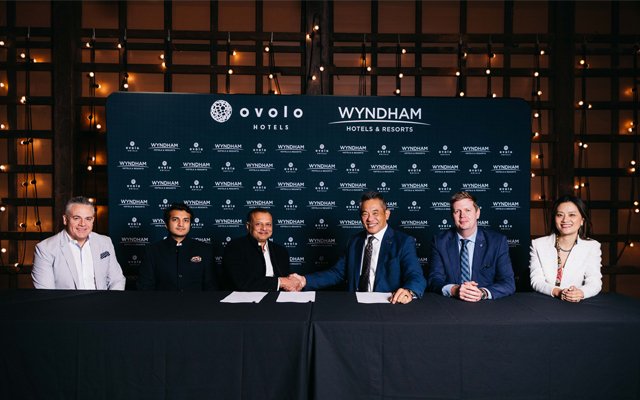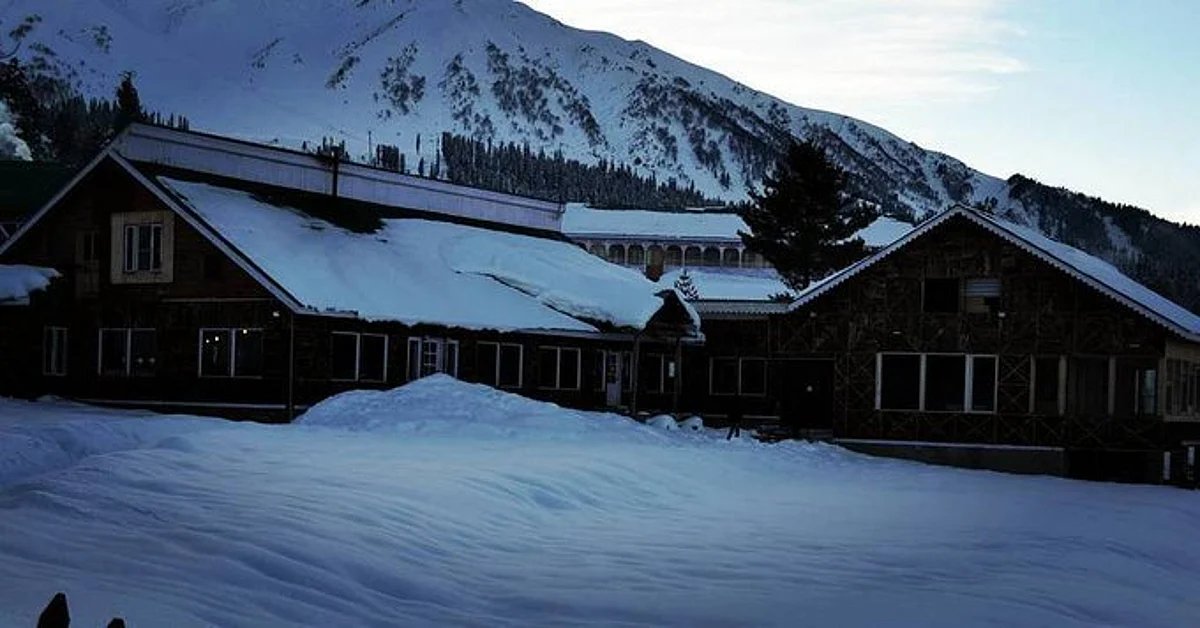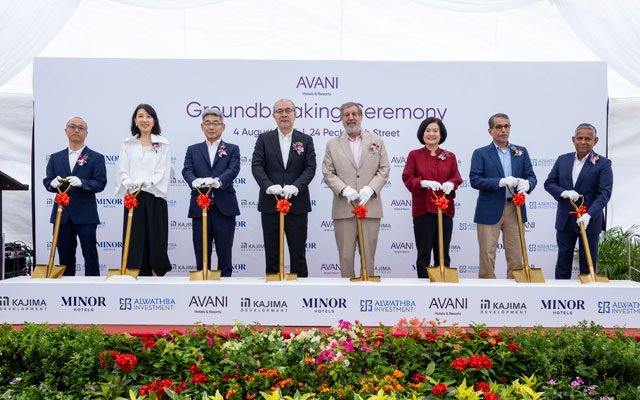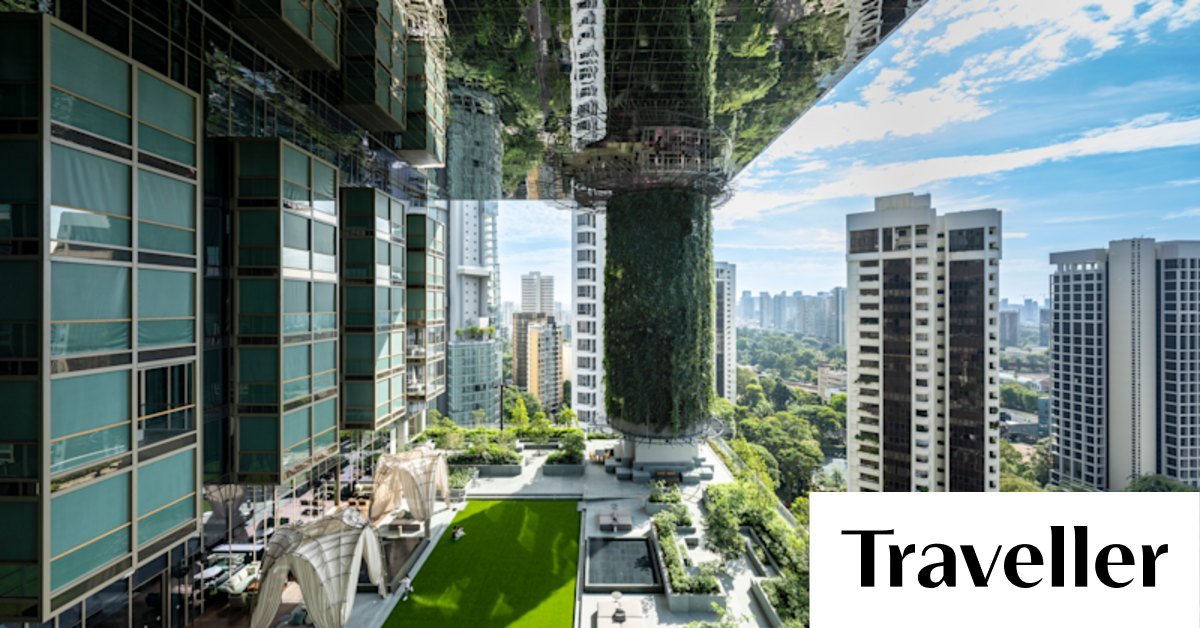Hotels & Accommodations
Wyndham adds five Ovolo hotels in Asia-Pacific to its portfolio

Wyndham Hotels & Resorts and Ovolo Group have partnered to bring five Ovolo hotels in Australia and Hong Kong under the Wyndham brand.
Under the agreement, Ovolo will continue to own and operate the properties while working exclusively with Wyndham to support new development across Asia-Pacific.
The partnership comes as demand for experiential travel grows globally, a segment estimated to be worth around US$1 trillion, particularly among younger travellers including Gen Z. The five hotels – located in Sydney, Brisbane, Canberra, Melbourne and Hong Kong – will be added to Wyndham’s portfolio later this year, representing over 450 rooms. Each property will be integrated into Wyndham’s sales, marketing and distribution platforms. They will also become part of the Wyndham Rewards loyalty programme, which has approximately 120 million members.
The hotels reflect Ovolo’s distinctive design and service approach. In Hong Kong, Ovolo Central is a 41-room hotel located near Lan Kwai Fong and SOHO, offering modern interiors and natural light. In Canberra, Ovolo Nishi is an 85-room hotel in the CBD, featuring a mix of vintage and contemporary design. Ovolo South Yarra in Melbourne includes 123 rooms styled with mid-century elements and is located near dining and nightlife options. In Brisbane’s Fortitude Valley, the 103-room Ovolo The Valley is close to bars, galleries and venues. Ovolo Woolloomooloo in Sydney is a 100-room hotel on the Finger Wharf, offering waterfront views and access to key attractions.
The move will expand Wyndham’s lifestyle hotel offering while giving Ovolo access to a broader commercial network.
“The future of travel isn’t about sameness – it’s about spaces with soul, brands with a point of view and experiences that don’t blur into the background,” said Joon Aun Ooi, president of Wyndham Hotels & Resorts Asia Pacific.
Shivang Jhunjhnuwala, chief of staff at Ovolo Group, added: “Ovolo isn’t just a hotel brand, it’s a lifestyle, a creative force that fuses fashion, art, music and entertainment. Now through our partnership with Wyndham, we’re flipping the script to unlock bold new growth opportunities by franchising a lifestyle brand without diluting its DNA.”
Hotels & Accommodations
Gulmarg authorities take over 137-year-old Nedous Hotel owned by J&K CM Omar’s relatives

SRINAGAR: The Gulmarg Development Authority (GDA) on Monday took over possession of the famed 137-year-old Nedous Hotel for operating without a valid lease and flagrant violation of directions of High Court of Jammu and Kashmir.
The hotel, which was established in 1888 and owned by relatives of Jammu and Kashmir Chief Minister Omar Abdullah, had allegedly been operating without a valid lease since 1985.
The GDA took action under the Jammu and Kashmir Public Premises (Eviction of Unauthorized Occupants) Act, 1988, in compliance with orders issued by both the Supreme Court of India and the High Court of J&K.
The Assistant Director of Tourism, acting as the designated Estate Officer, oversaw the eviction and transfer of premises to GDA. The operation of taking over possession of the property passed off peacefully in presence of a local magistrate and police personnel in strict compliance with orders of J&K High Court and Supreme Court of India.
A few days back, the GDA served an eviction notice to the hotel management through the Estates Officer (Assistant Director Tourism), following which the take over was processed.
“In exercise of powers conferred under the Jammu and Kashmir Public Premises (Eviction of Unauthorised Occupants) Act, 1988 and in compliance with the orders of the Hon’ble High Court J&K and the Hon’ble Supreme Court of India, it is hereby ordered that the persons presently in unauthorised occupation of the public premises known as Hotel Nedous, Gulmarg, are hereby directed to vacate the public premises forthwith and handover the possession,” read the eviction notice issued by Estates Officer Gulmarg to the hotel management.
Hotels & Accommodations
Minor Hotels expands footprint with Avani’s first Singapore hotel

Minor Hotels has broken ground on its first Avani property in Singapore, marking a key milestone for the lifestyle brand. Located at 24 Peck Seah Street in the Tanjong Pagar district, the 14-storey hotel is scheduled to open in 2Q2027.
Developed through a partnership with Singapore-based Kajima Development and Abu Dhabi-based Al Wathba Investment, Avani Singapore will feature 200 keys and offer an elevated urban escape that blends the heritage charm of the shophouse precinct with the brand’s modern aesthetic. Facilities will include a pool deck, gym, dining outlets, and a pedestrian link connecting Peck Seah and Tras Street.
The hotel’s location, less than 200m from Tanjong Pagar MRT Station and 350m from Maxwell MRT Station, will provide seamless access to key business and leisure districts including the Downtown Core and Marina Bay.
The groundbreaking ceremony was attended by over 50 guests, including William E Heinecke, chairman and founder of Minor International; Dillip Rajakarier, CEO of Minor Hotels and group CEO of Minor International; Mohamed Saif Al Suwaidi, managing director of Al Wathba Investment; and Shuichi Oishi, CEO of Kajima Development. Also present were the ambassadors of Japan and Thailand to Singapore.
Heinecke opened the event with a speech highlighting the project’s strategic significance and its role in expanding Avani’s presence in major global cities. A project overview followed, after which guests gathered for the ceremonial turning of the soil.
“With our trusted partners Kajima and Al Wathba, we are bringing to life a project that not only reflects our shared commitment to innovation and excellence, but also celebrates the city’s unique blend of culture and modernity,” said Heinecke.
Hotels & Accommodations
Why green hotels are adding more plants

The Jewel at Changi airport is a shopping mall that houses 2000 trees and palms and 10,000 shrubs, a hedge maze and a rain vortex cascading seven storeys, the world’s tallest indoor waterfall.
Pan Pacific Orchard is divided into Forest, Garden, Cloud and Beach.Credit: Darren Soh
At the Pan Pacific Orchard on Orchard Road, the impressive 23-storey tower has four separate climate zones – forest, beach, garden and cloud – with dense greenery settings, enormous plant-covered pillars and cascading water features.
And at the new Mandai Rainforest retreat by Banyan Tree, just 30 minutes from Singapore’s central business district, vines trail from platforms and balconies and greenery springs up in every passage and corner of the contemporary building. The plan is for the resort to entirely disappear into the rainforest as the plants grow.
While it’s common to be surrounded by plants at resorts in natural environments like tropical jungles or alpine forests, it’s city hotels that are really getting the green-up.
Some of the hotels in the 1 Hotel brand feature about 4000 plants. Clearly, a few hanging pot plants or rubber trees in pots won’t do any more.
Loading
This is part of a broader healthy building movement, which takes a holistic design approach, viewing the construction of a building and its inhabitants as deeply intertwined; human nature as well as plant nature.
It seems to me that this should be the most fundamental consideration of building design, but I think we’ve all seen buildings that have the opposite effect, ignoring the mental health aspects of existing in spaces unsympathetic to our innate biological connection with nature.
Brutalism appears to be in fashion again, but no matter how visually stunning those spaces are, they’re difficult to live in.
As the global population continues to urbanise, architects and designers are trying to figure out how people can reap the benefits of being in nature without going outside.
Loading
We’re lucky in Australia that even our biggest cities provide access to water, trees and natural light. But other urban environments are often land-locked concrete jungles.
The Japanese have always been respectful of the natural world, and even Tokyo, with its population of 37 million, can feel tranquil because of the access to Zen gardens and gorgeous interior tree plantings.
When we travel, we spend a lot of time in artificial environments – planes and airports, notably. Research shows that guests spend more time in biophilic hotel lobbies and rooms. It’s understandable that we would want to stay in a space that’s green and uplifting.
It’s a green revolution.
-

 Brand Stories2 weeks ago
Brand Stories2 weeks agoBloom Hotels: A Modern Vision of Hospitality Redefining Travel
-

 Brand Stories1 week ago
Brand Stories1 week agoCheQin.ai sets a new standard for hotel booking with its AI capabilities: empowering travellers to bargain, choose the best, and book with clarity.
-

 Destinations & Things To Do2 weeks ago
Destinations & Things To Do2 weeks agoUntouched Destinations: Stunning Hidden Gems You Must Visit
-

 Destinations & Things To Do1 week ago
Destinations & Things To Do1 week agoThis Hidden Beach in India Glows at Night-But Only in One Secret Season
-

 AI in Travel2 weeks ago
AI in Travel2 weeks agoAI Travel Revolution: Must-Have Guide to the Best Experience
-

 Brand Stories1 month ago
Brand Stories1 month agoVoice AI Startup ElevenLabs Plans to Add Hubs Around the World
-

 Brand Stories4 weeks ago
Brand Stories4 weeks agoHow Elon Musk’s rogue Grok chatbot became a cautionary AI tale
-

 Asia Travel Pulse1 month ago
Asia Travel Pulse1 month agoLooking For Adventure In Asia? Here Are 7 Epic Destinations You Need To Experience At Least Once – Zee News
-

 AI in Travel1 month ago
AI in Travel1 month ago‘Will AI take my job?’ A trip to a Beijing fortune-telling bar to see what lies ahead | China
-

 Brand Stories2 weeks ago
Brand Stories2 weeks agoContactless Hospitality: Why Remote Management Technology Is Key to Seamless Guest Experiences

You must be logged in to post a comment Login